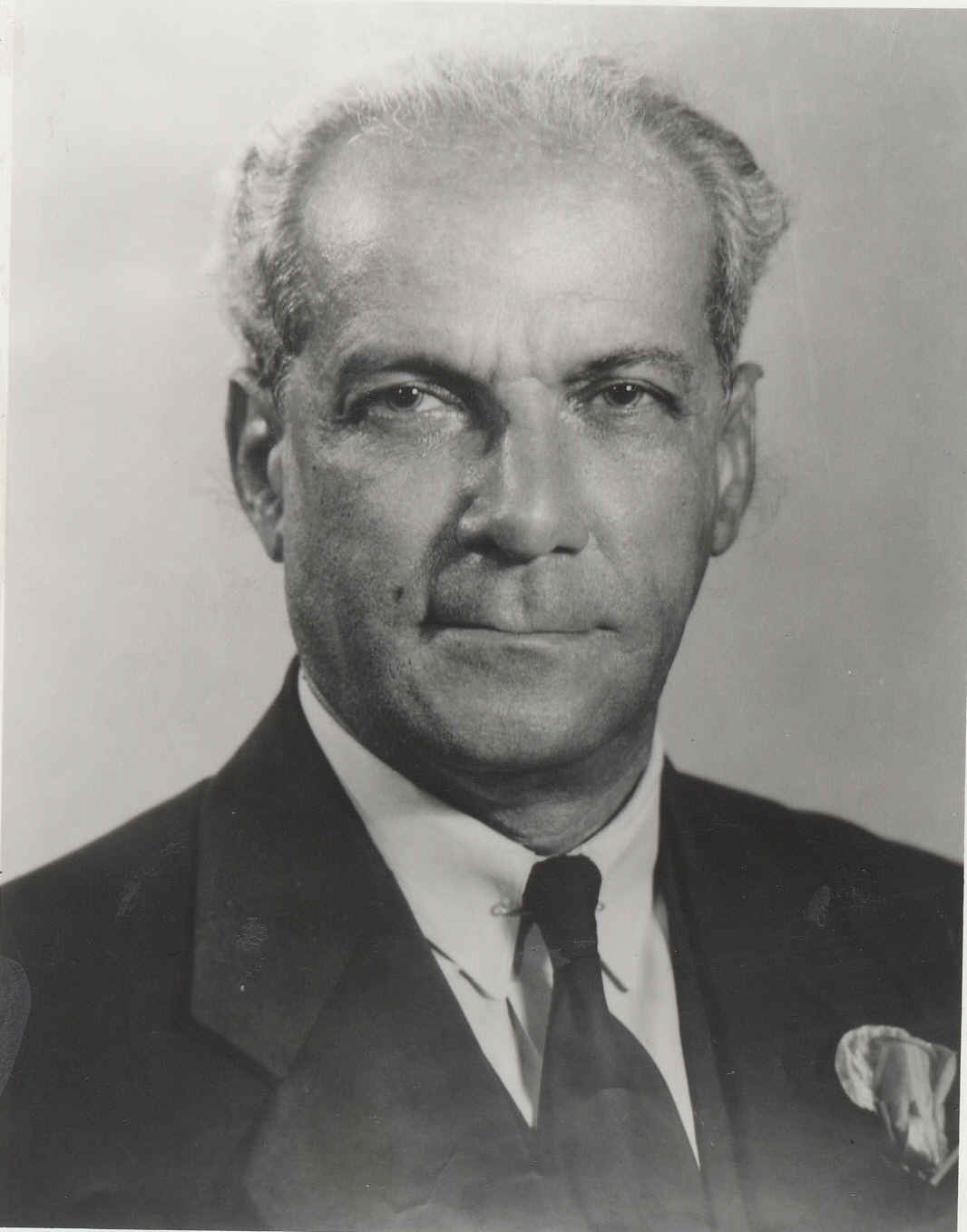The Rt. Hon. Norman Washington Manley (1893 - 1969)

Name: Norman Washington Manley
Born: July 4, 1893
Died: September 2, 1969
Industry: Government; Politics
Norman Manley was born on July 4, 1893, at Roxborough in Manchester. His father, Thomas Albert Samuel Manley, was a planter and produce dealer from Porus and his mother Margaret Ann (nee Shearer), a small pen keeper from Blenheim in Hanover. He was one of four children.
Manley spent his early years on his father’s property at Roxborough. Thomas Manley died while his son was still a young boy and soon afterwards his widow Margaret Manley and her young children left Manchester for St. Catherine, where she had a property called Belmont.
Norman Manley was registered at Guanaboa Vale Elementary School at eight years old. He excelled in the classroom and began his secondary education at Wolmer’s Boys’ School in Kingston for a year. However, the following year he drew nearer home and attended Beckford and Smith’s in Spanish Town. Later on, he won an Open Scholarship to Jamaica College where his gift for athletics found full expression. After leaving school he taught at Jamaica College, Hope Farm School until he received news that he had won the Rhodes Scholarship.
He read Law at Jesus College, Oxford where his studies were interrupted by World War I. In 1919 he resumed his studies at Oxford University, gained First Class Honours and won the Lee Prizeman (Essay) Award at Gray’s Inn before being called to the Bar in 1921. In that same year he married his cousin Edna Swithenbank.
Almost simultaneously with the beginning of his work with the J amaica Welfare Ltd., Manley became deeply involved in the economic and political upheaval of the 1930’s. He was involved in union activities, which led to the establishment of the Trade Union Congress (TUC). As soon as the first period of turmoil was over, Manley went various parts of the island, recruiting persons to come to Kingston to take part in the formation of a political party.
On September 18, 1938 the People’s National Party was launched at a huge meeting at the Ward Theatre. The formation of this party was indeed the beginning of the national movement for self-government.
Six years later, in 1944, the first election under Adult Suffrage. The People’s National Party was largely responsible for paving the way towards the establishment of the new constitution, which gave all Jamaicans the right to vote. The party was, however, defeated at the polls that year but won in 1955.
During his years of administration Manley placed great emphasis on agriculture, education and industry. In 1959, the PNP achieved one of its primary goals, that of self-government. The Jamaican Government now became responsible for the internal affairs of the country, and Manley, the former Chief Minister was from then on addressed as Premier.
HONOURS
- In 1932 Norman Manley was made King’s Counsel
- The Howard University conferred on him the honorary degree of Doctor of Law in 1946.
- He was voted a life member of the Congress of International Organisations by the United Transport Service Employees in Chicago .
- A speech made by Manley at the National Press Club in Washington was published in the Congressional Record.
- In 1961 he was made an honorary citizen of Kansas City , Missouri.
- The Order of National Hero, the highest Jamaican Honour was conferred on Norman Manley after his death.
- His birthplace at Roxborough in Manchester is a National Monument
- A memorial has been erected on the site of his grave in the National Shrine, at National Heroes Park.
- The Norman Manley award of Excellence has been established and is awarded annually to Jamaicans who have given distinguished service to their country.
Mr. Manley had suffered a series of heart attacks dating from 1953, and he was forced into early retirement in 1969 due to ill health. His last public appearance was made in July 1969 when he received the Jamaica School of Agriculture Gold Medal for distinguished service to Jamaican agriculture. He became ill on Monday September 1, 1969, fell into a coma and died the following afternoon. He was 77 years old.
Related Documents
- Our National Heroes: Norman Washington Manley. Jamaica Observer Ltd., October 16, 2010.
- Manley’s bust presented to Institute. Daily Gleaner, October 7, 1971. p. 7
- Bustamante was a relative and treated as such.
- Plaques dedicated to Norman Manley. March 19, 1982.
- Plaque marks NW Manley’s birthplace today. Jamaica Daily News, July 4, 1976. Vol. 4 No. 35
- Ceremony for National hero. The Star, June 28, 1976. p. 2 col. 1
- I had long considered writing my memoirs.
- In memory of N.W. Manley: US College gets gift of books on W.I. Daily Gleaner, January 12, 1973.
- Norman Manley, National Hero, praised at service. Daily Gleaner, April 21, 1973
- Burnham’s Tribute to N. W. Manley. Daily Gleaner, April 29, 1973. \
- Tribute paid to N. W. Manley. Daily Gleaner, February 23, 1970. p. 1.
- Norman W. Manley
- Manley and the New Jamaica, A reply by Rex Nettleford. Sunday Gleaner, May 7, 1972.
- Norman Manley memorial is dedicated. Daily Gleaner, September 17, 1972. p. 1.
- Norman Washington Manley stands in the front ranks… Daily Gleaner, October 16, 1972.
- School Days at Jamaica College – Tough and Unsentimental Youngster. Daily Gleaner, March 20, 1974. p. 3
- Norman Manley. The Star, October 11, 1976. p. 9.
- Design Competition for Manley’s monument – JIS. The Star, May 21, 1970. p. 5.
- Hard dull work and the misery of the trenches. Daily Gleaner, March 23, 1974. p. 3.
- I threw in my stripes and moved to a battery of guns. Daily Gleaner, March 26, 1974. p. 3.
- Three weeks of misery and then to Pashendale Ridge. Daily Gleaner, March 27, 1974. p. 3
- A break from the war then back to the front. Daily Gleaner, March 28, 1974. p. 3.
- Honouring a National Hero. Jamaica Daily News, July 7, 1973. p. 16 – 17
- Sherlock Award to N. W. Manley. Daily Gleaner, May 20, 1970.
- Manley: ‘A big man by any standard of Judgement’. The Star, September 4th, 1970.
- Feature article on CM for Toronto paper. Daily Gleaner, December 1, 1955.
- Hail the Hero. Jamaica Daily News, July 5, 1976.
- Competition for designing monument -JIS. Daily Gleaner, May 21, 1970. p. 1.
